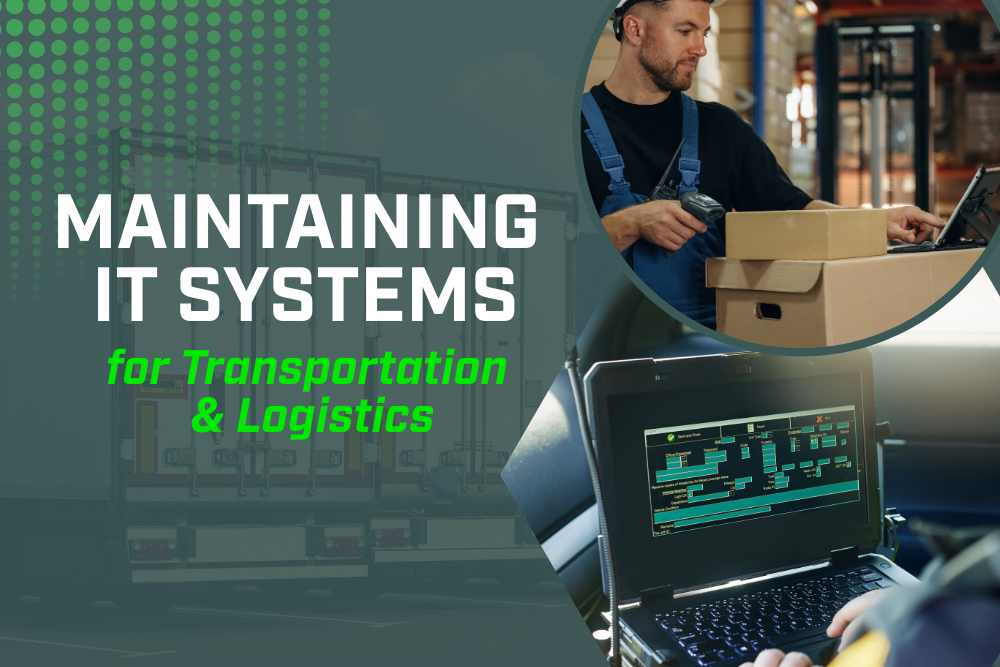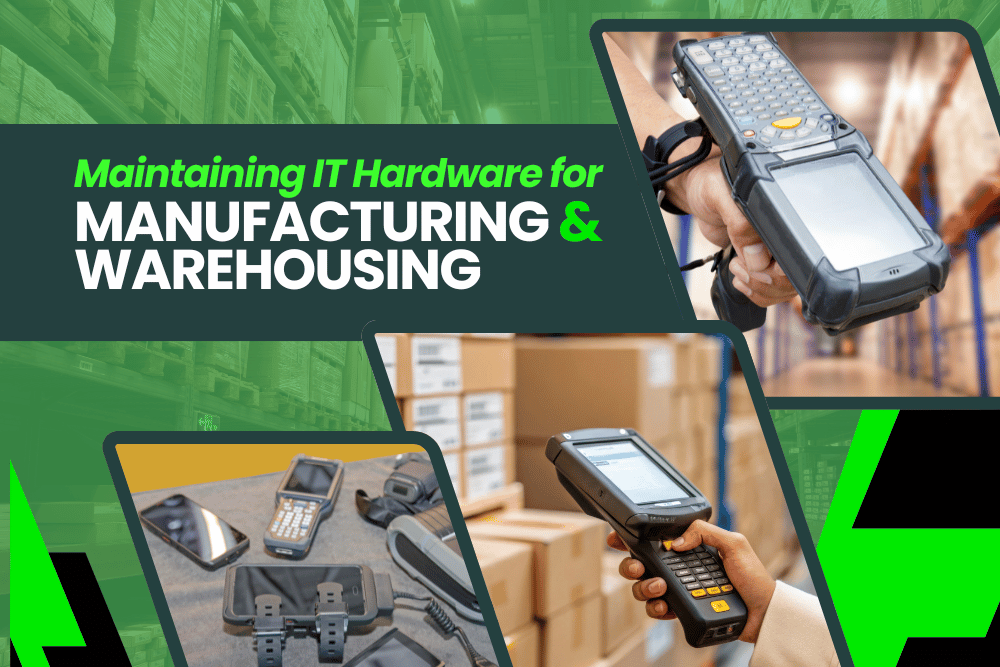The Importance of RFID in Supply Chain Security
September 12, 2025
In an era where supply chains are becoming increasingly complex and global, ensuring the security and efficiency of goods movement is critical. Radio Frequency Identification (RFID) has emerged as a game-changing technology that enhances visibility, streamlines operations, and fortifies security. For organizations in retail, warehousing, logistics, and transportation, RFID is not just a tool, it's a strategic asset. This article explores the role RFID plays in securing supply chains and how Mercom supports businesses with tailored RFID-enabled solutions.
What Is RFID in the Supply Chain?
RFID is a wireless communication technology that uses electromagnetic fields to identify and track tags attached to objects. In the supply chain context, RFID is employed to track inventory, monitor asset movements, and verify shipments in real time. Unlike traditional barcodes, RFID tags do not require line-of-sight and can store more data, making them far more efficient for large-scale operations.
In a typical
RFID system, there are three core components: RFID tags (attached to items), RFID readers (which scan and collect data), and a backend system for processing and analytics. This setup allows for real-time visibility and control, even across multiple distribution centers, stores, or global warehouses.
Why RFID Matters for Supply Chain Security
Supply chain security is no longer a luxury, it's a necessity. Threats like theft, counterfeiting, and data manipulation pose serious risks to inventory integrity and brand reputation. RFID technology provides a robust layer of security by enabling real-time asset tracking and verification.
RFID can identify anomalies immediately. For instance, if a shipment is opened or diverted en route, the system can flag the event and notify stakeholders instantly. This real-time alerting empowers businesses to act quickly, minimizing losses and ensuring compliance with regulatory standards.
Key Benefits of RFID for Retail and Warehousing
Retail and warehousing environments face unique challenges, such as high SKU volumes, rapid inventory turnover, and complex distribution needs. RFID technology addresses these challenges by delivering several strategic benefits:
Inventory Accuracy: RFID systems typically achieve up to 99% inventory accuracy, reducing out-of-stock scenarios and enabling smarter replenishment decisions.
Operational Efficiency: Automated scanning and data capture speed up receiving, picking, and shipping processes.
Improved Visibility: Real-time tracking helps warehouse managers and retail staff understand inventory location, status, and movement.
Cost Savings: Fewer labor hours are required for inventory audits and error correction, translating to long-term savings.
Compliance and Reporting: RFID systems support detailed audit trails, which are essential for regulatory compliance and quality assurance.
Common RFID Use Cases in Logistics and Transport
Logistics and transport operations benefit significantly from RFID by enabling end-to-end visibility and real-time asset tracking. Common use cases include:
Pallet and Container Tracking: RFID tags attached to shipping containers or pallets allow for quick verification at various transit points.
Cold Chain Monitoring: RFID sensors can be paired with temperature-sensitive goods to ensure compliance with storage and handling guidelines.
Fleet Management: RFID tags on vehicles enable automated tracking of location, usage, and maintenance schedules.
Gate Automation: RFID-enabled checkpoints can speed up inbound and outbound processing at warehouses and distribution centers.
How RFID Reduces Shrinkage and Fraud Risk
- Shrinkage, or loss of inventory due to theft, damage, or administrative errors, is a multi-billion-dollar problem for industry. RFID technology provides a direct defense against shrinkage and fraud through:
- Access Control: Only authorized personnel can interact with tagged goods, which can be logged and monitored in real time.
- Tamper Detection: RFID tags can be programmed to alert the system if they are removed or compromised.
- Item-Level Tracking: With RFID, each item has a unique identifier, making it harder for goods to be swapped or counterfeited without detection.
- Enhanced Audit Capabilities: RFID creates a reliable digital log of item movements, providing accountability and transparency throughout the supply chain.
Implementing RFID: What to Consider
Transitioning to an RFID-enabled supply chain requires careful planning and execution. Businesses should consider the following:
| Tag Selection: | Choose tags that match the environmental conditions and materials of your goods. |
| Infrastructure: | Install the right number and placement of readers to ensure complete coverage. |
| System Integration: | nsure that RFID systems integrate seamlessly with existing WMS, ERP, and inventory platforms. |
| Training: | Equip your staff with the knowledge to manage and maintain RFID systems effectively. |
| ROI Analysis: | Assess the long-term cost savings, operational gains, and security benefits against the initial investment. |
At Mercom, we understand how disruptive it can be when RFID systems or devices fail. That’s why we’ve built our reputation as a trusted guide to help businesses stay operational and secure with reliable, long-term hardware support.
Your Simple RFID Action Plan:
- Evaluate your current supply chain vulnerabilities and RFID needs
- Determine your equipment support requirements
- Partner with Mercom for repair, refurbishment, or upgrade services
Future Trends in RFID and Supply Chain Technology
As RFID technology evolves, it is becoming more powerful and accessible. Key trends shaping the future include:
- IoT Integration: RFID will increasingly work in tandem with IoT sensors to provide granular environmental data.
- Blockchain Integration: Combining RFID with blockchain can enhance transparency and traceability in the supply chain.
- AI-Driven Analytics: Machine learning algorithms can process RFID data to predict disruptions, optimize inventory, and enhance decision-making.
- Miniaturization: Smaller, cheaper RFID tags will make it feasible to tag more items individually, increasing tracking granularity.
Organizations that adopt these innovations early will be better positioned to compete in an increasingly digital and data-driven marketplace.
How Mercom Supports RFID in Supply Chains
RFID implementation doesn't stop at installation. Long-term success depends on access to reliable hardware and timely repair services. That’s where Mercom steps in. As a trusted depot repair provider with over 30+ years of experience, Mercom offers extensive support for the ongoing needs of RFID-enabled operations.
Mercom provides certified repair and refurbishment services for a wide range of essential RFID equipment, including:
- Zebra Technologies mobile computers, RFID scanners, and printers
- Honeywell handheld devices, vehicle-mounted computers, and RFID readers
- Datalogic inventory management scanners and industrial RFID equipment
Whether your operations require replacement units, preventative maintenance, or urgent repairs, Mercom ensures that critical devices remain online and functional. All equipment is rigorously tested, certified, and ready to deploy, helping you maximize uptime without the expense of new hardware.
Don’t let unreliable equipment or incomplete RFID systems put your business at risk. The cost of inaction includes inventory losses, compliance setbacks, and customer dissatisfaction. Take the first step to strengthen your supply chain today.
If you'd like to find out more about how to secure your supply chain with RFID, or if you have specific repair or support questions,
contact the team at Mercom Repair.




